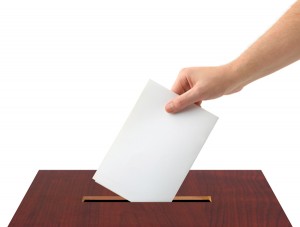By Steve Brawner
© 2016 by Steve Brawner Communications, Inc.
The Declaration of Independence specifies three inalienable rights it says are endowed by our Creator, one of them the right to pursue happiness, with government’s purpose being to secure those rights.
One way it can do that is to start the 2020 election season later.
This ugly election was a part of our lives for a year-and-a-half. Presidential campaigns have always been difficult and divisive, but this latest one uniquely tore a hole in the fabric of our society, and I’m not sure how it’s going to mend. Consider that President-elect Donald Trump announced he was running on June 15, 2015, while Hillary Clinton announced her campaign two months earlier, on April 12. The first of many Republican presidential debates – the one where Trump and Fox News’ Megyn Kelly first got into it – was August 6 of last year. The Iowa Caucuses were Feb. 1, more than nine months before the election, while Arkansans held their primary only a month later.
The idea of starting all of this again in only two-and-a-half years is unbearable at the moment, and truly not necessary. Americans are supposed to keep a watchful eye on their government, but too much politics isn’t good for anybody.
Most other democracies don’t do it this way. Elections occur when they are called, or when a party exits a governing coalition, or because of other such reasons. As a result, campaigns occur over a period of weeks, not years. Earlier this year in Great Britain, the prime minister voluntarily left office because he believed he had lost too much support after the Brexit vote. He was not disgraced, and there was no constitutional crisis; his party simply selected his successor. Within days, he was moving out of #10 Downing Street and she was moving in.
That kind of thing can’t happen in America. Our system was designed to have elections occur at regular intervals, and the writers of the Constitution didn’t take into account how powerful political parties would become or how much money would be involved. In 1787, the media was composed of printed newspapers, while discourse happened face to face, not on Facebook.
Constitutional change is needed, but that can take years. In the meantime, voluntary steps over the next four years can make the 2020 election cycle less divisive. Candidates can announce their intentions whenever they want, but let’s have no debates until 2020. The Iowa Caucuses should be moved to March 1 and the rest of the season compressed into a tighter period. Arkansas, which moved its own primaries from May to March 1, should permanently move the primaries back to May and never look back.
For this to happen, Americans will have to force the action. Politics is a free market economy, which means that if there’s a buyer, there will be a seller. This campaign season has been a boon for the news networks, which have seen higher ratings and therefore more advertising revenue. But what’s good for CNN and Fox News isn’t necessarily good for the rest of us, and so when the networks dangle the 2020 race in front of our faces in 2019, we should turn the channel or turn off politics completely.
This doesn’t mean Americans should stop caring about our democracy – it just means our attention should be focused more effectively. Instead of creating a market for another political circus in 2019, let’s pay more attention to the participatory processes of government, such as what laws and policies are enacted, and then save the campaigning and the debating until 2020.
A never-ending election cycle does not create a better democracy, and apparently a lot of Arkansans agree. On Tuesday, 70 percent of them voted for an amendment increasing county officials’ terms from two years to four, meaning county judges and sheriffs can actually spend time doing their jobs rather than putting up yard signs every two years.
So let’s appreciate the fact that we elect our leaders – but how about we give this a rest for a while, OK? The next presidential election is in 2020. Let’s keep it there, and use that extra time for more appropriate pursuits, including the one for happiness.
